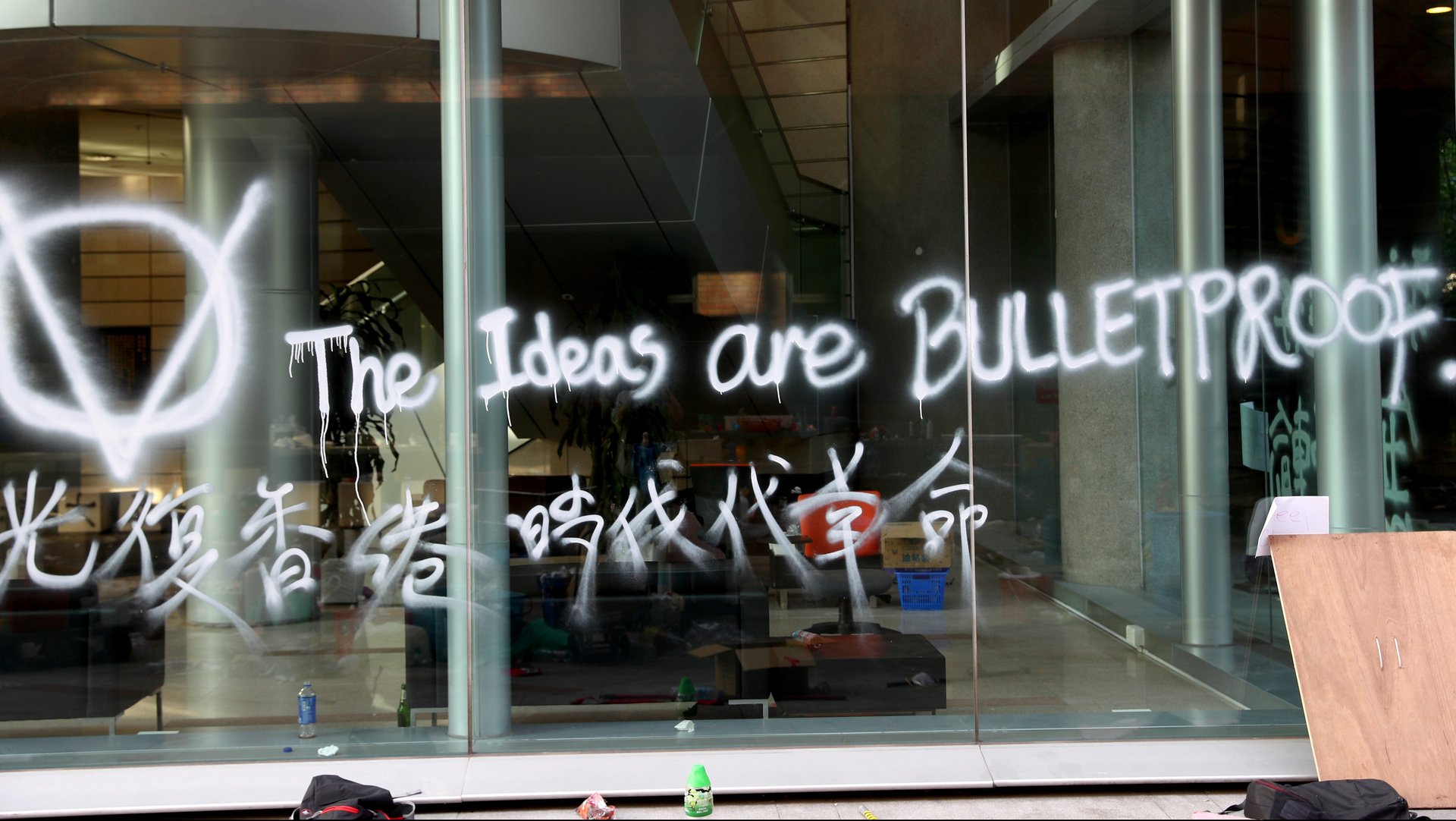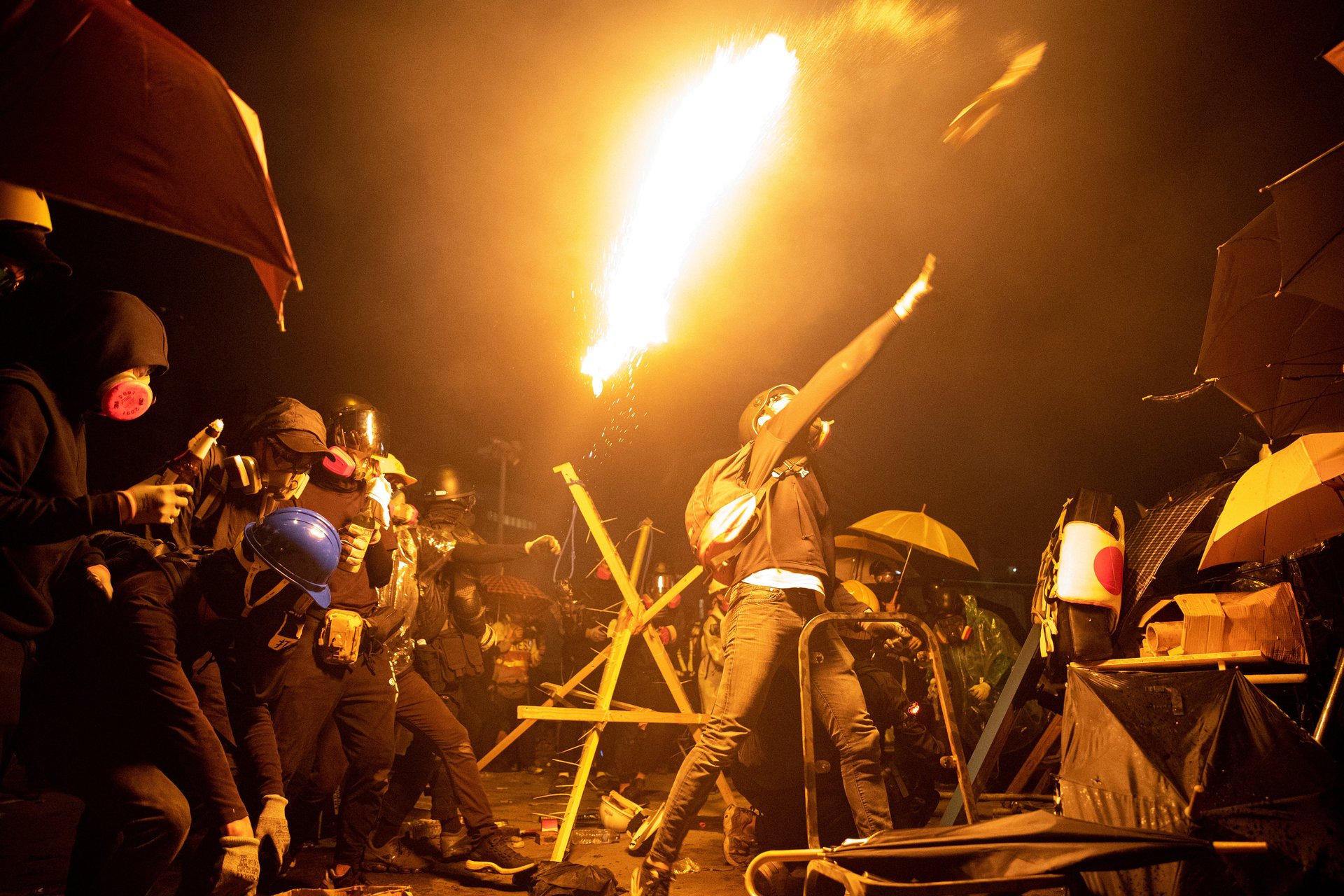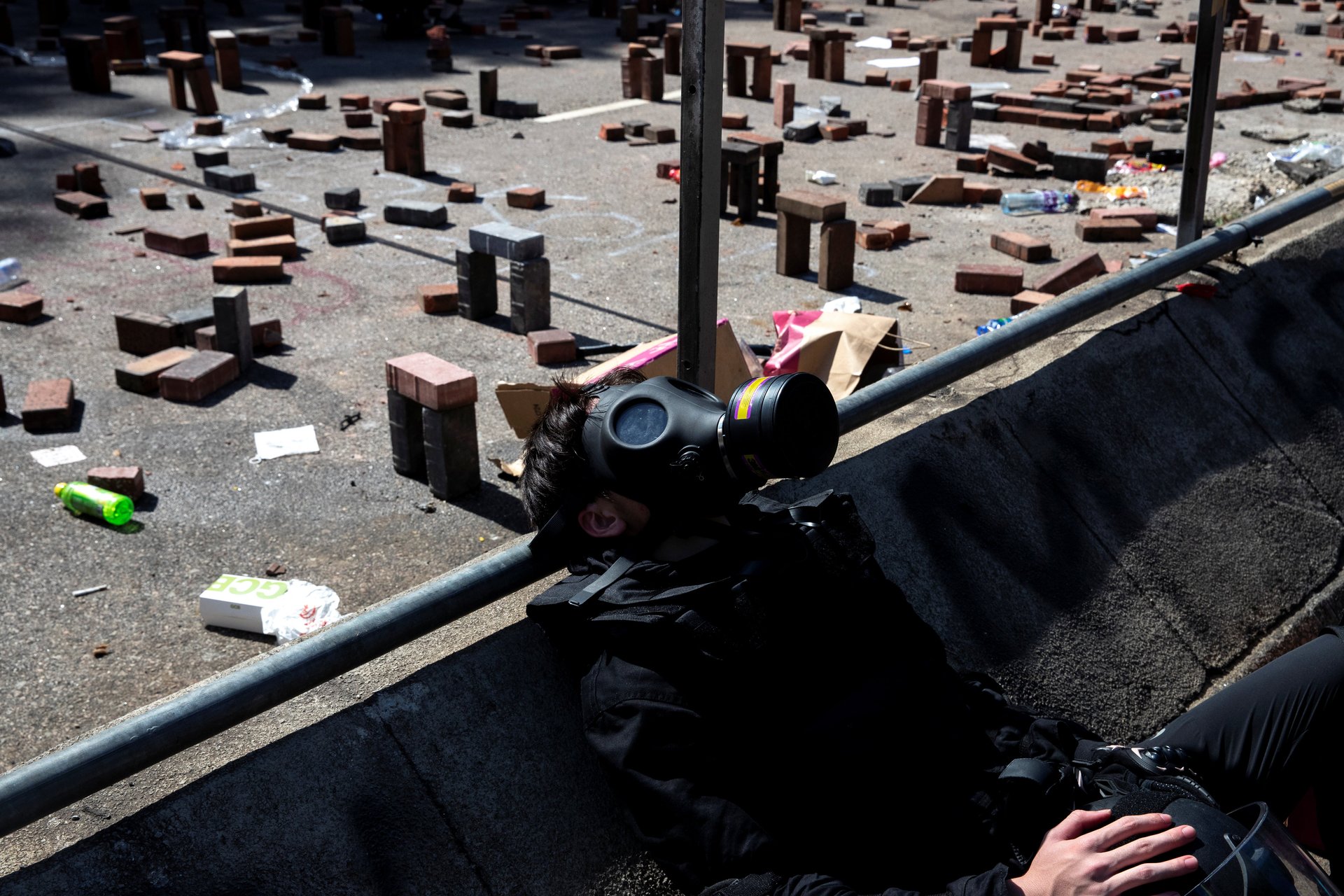Hong Kong’s protesters embody what it means to be driven by democratic ideals
A year ago, the trial of the “Umbrella Nine” began in Hong Kong, but there were no mass protests. Two scholars and a reverend were among those prosecuted for rallying people to commit civil disobedience in 2014, in a public demand for genuine democracy, but the city was placid, seemingly resigned to a lawmaker disqualified here, a protester imprisoned there.


A year ago, the trial of the “Umbrella Nine” began in Hong Kong, but there were no mass protests. Two scholars and a reverend were among those prosecuted for rallying people to commit civil disobedience in 2014, in a public demand for genuine democracy, but the city was placid, seemingly resigned to a lawmaker disqualified here, a protester imprisoned there.
A year on we marvel at how clueless we were. The city was not quiet—it was seething. And scenes from recent days show how deep the anger and disappointment runs. Young men and women furiously dig up bricks and build little Stonehenges on the city’s most trafficked roads. University students find masonry tips online to erect walls and barricade their campuses. Smoke billows as police and students pelt tear gas and Molotov cocktails, respectively, at one another. Are these warriors the same young people who seemed entirely absorbed by the flickering screens of their phones just a year ago?
The media has been chastised for glorifying the protesters—particularly as some have turned to more violent actions. Nobody condones attacks such as the setting on fire of a man who argued with pro-democracy protesters. But the criticism misses what has moved many observers: the sight of young people driven by faith in democratic ideals.


There had been cynicism about whether the US Senate would follow the House’s example and pass the Hong Kong Human Rights and Democracy Act, which people in the territory have been lobbying for as evidence that the US stands with Hong Kong. The increasing tension prompted the Senate to finally (and unanimously) pass it this week, and a reconciled bill will soon be before Donald Trump. Amid trade talks with China, the US president might veto it. Congress can override him if he does.
The law, which institutes annual checks of Hong Kong’s autonomy, may not be able to hold back the slow whittling away of the territory’s arm’s-length relationship with Beijing. But its passage reminds US lawmakers what it means to be driven by the highest ideals, even as they say to every Hong Kong protester: We see you.
This essay was originally published in the weekend edition of the Quartz Daily Brief newsletter. Sign up for it here.